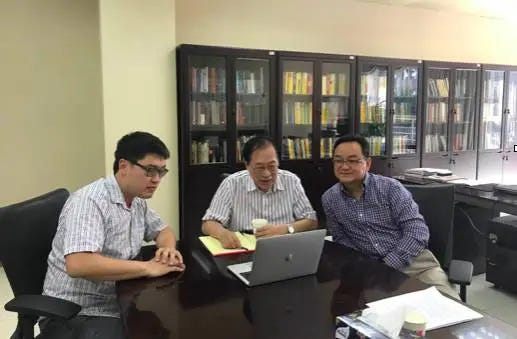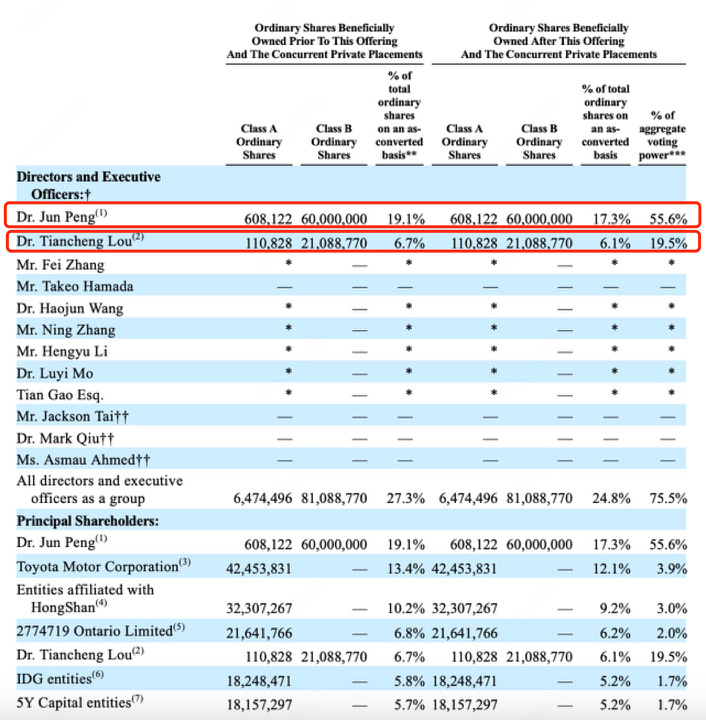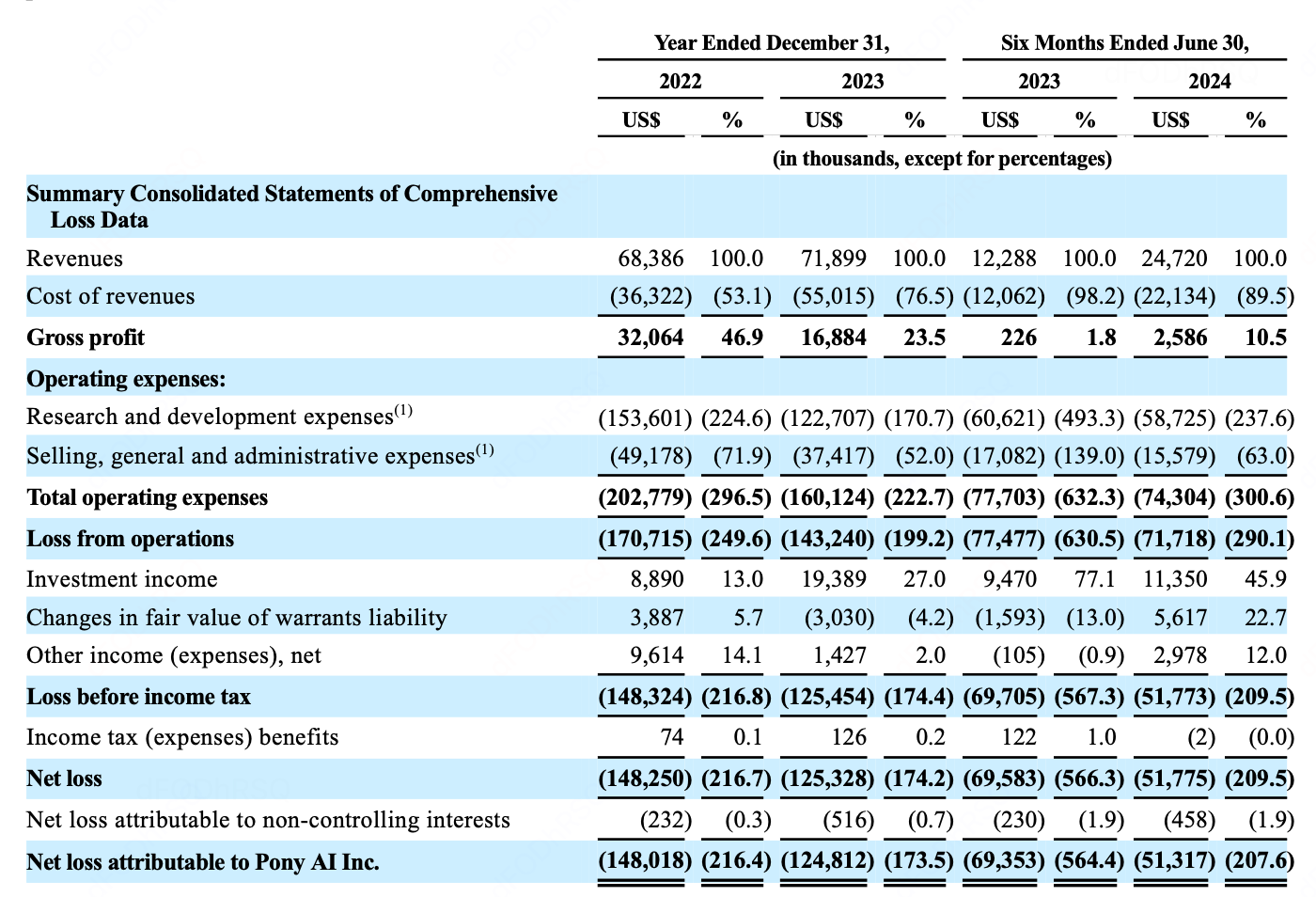Pony.ai | reinvent the wheel #3
The Thorned Rose of China's Autonomous Driving Arena
Imagine a world where cars glide through city streets like skilled dancers, orchestrating a seamless ballet of transportation without human hands on the wheel. This isn't a scene from a sci-fi movie – it's the vision that Pony.ai, one of China's leading autonomous driving companies, is turning into reality. As artificial intelligence reshapes our world, Pony.ai stands at the forefront of a transportation revolution that promises to fundamentally change how we move through our cities.
Team: A Hub of Tech Expertise
Pony.ai stands as a frontrunner in China's autonomous driving sector, boasting a substantial valuation and robust funding. With $1.3 billion raised across recent funding rounds, the company's post-money valuation exceeds $8.5 billion. The leadership team includes co-founder and CEO James Peng, and co-founder and CTO Lou Tiancheng (also known as "Lou Jiaozhu" - a nickname that translates to "Cult Leader Lou," which he earned in the Chinese tech community due to his exceptional technical expertise and the devoted following he has among engineers and AI enthusiasts), a graduate of Tsinghua University's Yao Class. Furthermore, Pony.ai maintains close ties with Turing Award winner Andrew Yao, who serves as the company's chief consultant.
James Peng(right), Lou Tiancheng(left) and Andrew Yao(middle)
Peng and Lou each bring extensive industry experience and technical expertise to the table . Their combined strengths lay a solid foundation for Pony.ai's rapid growth and technological innovation. Yao's advisory role further elevates the company's technical prowess and industry influence.
Pony.ai's ability to attract and retain top-tier talent underscores its appeal within the autonomous driving landscape. The company's commitment to technological innovation and commercialization attracts numerous talented engineers and researchers. The team's professionalism and cohesiveness are key factors in Pony.ai's ability to maintain a leading position in a competitive market.
Technology: World Model and Learning by Practicing
While Pony.ai has earned the moniker "Demo King" for its reliable autonomous driving demonstrations in China, the company is continuously evolving its core technologies. CTO Lou Tiancheng expresses reservations about relying solely on end-to-end methods to achieve Level 4 autonomous driving. Instead, Pony.ai focuses on "Learning by Practicing," leveraging AI to construct a "World Model".
Pony’s pilot program in Beijing
This "World Model" serves as a virtual training ground for the car's systems, enabling them to evolve and refine their capabilities through reinforcement learning. By simulating a variety of real-world driving scenarios, Pony.ai can rigorously test and optimize its systems in a controlled and repeatable environment. Lou Tiancheng likens this "World Model" to a "factory" for autonomous vehicle intelligence, where the fidelity and precision of the factory directly determine the capabilities of the final product.
By embracing the concepts of "Learning by Practicing" and "World Models," Pony.ai seeks to overcome the limitations associated with traditional data-driven approaches. This enables a more proactive and targeted development process, one that emphasizes not only replicating observed behaviors but also understanding the underlying principles and decision-making processes. This technological emphasis underscores Pony.ai's commitment to building robust and adaptable autonomous driving systems.
Prospectus and Commercialization: Opportunities and Challenges
Having successfully gone public, Pony.ai's IPO (NASDAQ:PONY) marks a significant milestone that highlights both the tremendous potential and inherent financial complexities of the autonomous driving sector. The company is now listed on the Nasdaq Global Select Market under the ticker symbol "PONY". During the IPO process, underwriters exercised their over-allotment option to purchase an additional 3,000,000 ADSs from Pony.ai. Pony.ai launched its Robotaxi service in December 2018, rolling out in cities like Guangzhou, Beijing, Shanghai, and Shenzhen via the "PonyPilot" app. As of the first half of 2024, the Robotaxi fleet included over 250 vehicles, accumulating over 33.5 million kilometers of autonomous driving, averaging 15 orders per day. The company is also exploring applications in the autonomous trucking space.
According to the S1 filing, Pony.ai reported revenues of $68.39 million in 2022, $71.90 million in 2023, and $24.72 million for the first half of 2024. These figures reflect the company's progress on its commercialization journey and demonstrate the autonomous driving industry's transition from technological research and development to practical commercial applications.
Keep reading with a 7-day free trial
Subscribe to World Model to keep reading this post and get 7 days of free access to the full post archives.




